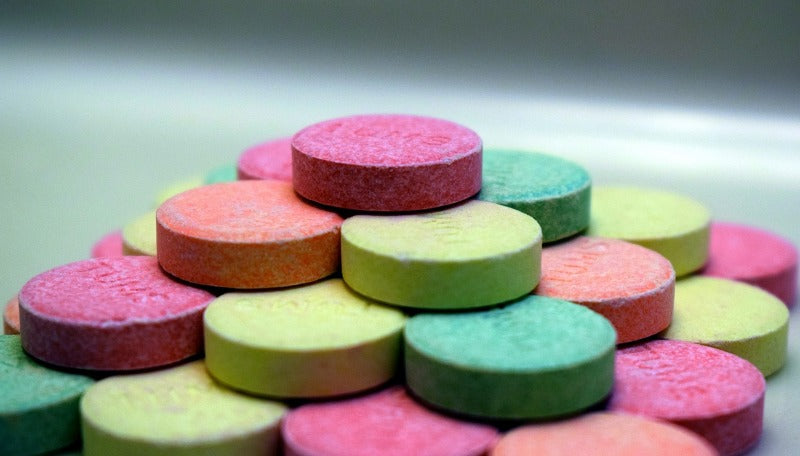Gastroesophageal reflux disease, also known as GERD, causes symptoms such as persistent heartburn and acid reflux. This chronic condition, which is caused by inflammation and dysfunctions in the stomach, affects nearly 1 in 5 American adults. GERD causes and risk factors include obesity, untreated food allergies, smoking, leaky gut syndrome, high stress levels, and poor circulation. (1) Fortunately, following a GERD diet can alleviate irritating symptoms.



GERD Diet
Following a GERD diet can help treat the root cause of acid reflux and other symptoms - high levels of inflammation. A GERD diet consists of avoiding processed trigger foods and replacing them with healthy anti-inflammatory foods to heal the digestive system. Knowing which GERD foods to eat and which GERD foods to avoid can help patients reduce and manage symptoms naturally without medication. (2)
GERD Foods to Eat
- Fresh vegetables, especially artichoke, leafy greens, carrots, squash, sweet potatoes, asparagus, green beans, peas, cucumber and fennel
- High-fiber foods, including fruits, vegetables, beans, whole grains, nuts and seeds
- High-quality lean proteins
- Fruits such as apples pears, melon and blueberries (monitor your symptoms when eating citrus fruits)
- Apple cider vinegar
- Sea vegetables such as algae, kelp and spirulina
- Healthy fats such as olive oil, coconut oil, avocado, nuts and seeds
- Probiotic foods such as kombucha, kefir and cultured vegetables
GERD Foods to Avoid
- Common food allergens such as dairy and gluten
- Synthetic ingredients in processed foods
- Caffeinated drinks
- Carbonated drinks
- Alcohol
- Cocoa and chocolate
- High-sodium foods
- Fatty, processed foods
- Refined grain products including packaged snacks
- Spicy foods
- Citrus fruits or juices
- Tomatoes or food products made with tomatoes
- Garlic, onions or peppermint in some cases

Essential Oils for GERD
In addition to following a GERD diet, certain essential oils can also help lower inflammation, promote healthy digestion, and reduce GERD symptoms. For example, try these essential oils for GERD (5):- Juniper Berry: Studies have shown that juniper berry essential oil contains over 87 active compounds, including strong antioxidants, antibacterials and anti-fungals (6)
- Ginger: Ginger has anti-inflammatory properties that can help lower inflammation and improve digestion
- Peppermint: Peppermint oil has soothing properties that can naturally help relieve indigestion
- Fennel: Fennel oil is known to help treat stomach disorders including indigestion and acid reflux

Supplements for GERD
In addition to a GERD diet, natural supplements can take the place of many medications to help manage painful and irritating symptoms associated with GERD. Supplements for GERD include:- Slippery Elm: Studies suggest that slipper elm may soothe and heal the lining of the GI tract
- Vitamin C: Vitamin C has powerful antioxidant properties that help strengthen the immune system (7)
- L-glutamine: Research suggests that L-glutamine can help regulate acid production and soothe indigestion
- Licorice Root: Licorice root may help form a protective coating to limit damage to the stomach and esophagus (8)
- Probiotics: Probiotics promote beneficial gut bacteria to help heal the digestive system and the immune system
- Omega-3's: Omega-3 fatty acids help lower inflammation in the body
- Ginger and Turmeric: These spices are known for their powerful anti-inflammatory properties
- Digestive Enzymes: Digestive enzymes help the body fully digest foods and better absorb nutrients to help prevent acid buildup (9)
- Psyllium Husk: Psyllium husk contains fiber that may help relieve digestive issues





